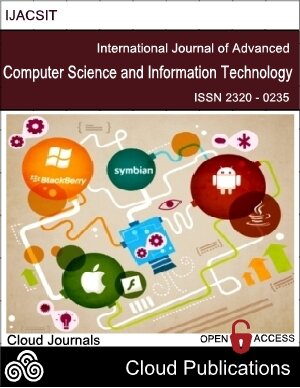Open Access
International Journal of Advanced Game Software & Esports Technology
The International Journal of Advanced Game Software & Esports Technology is a peer-reviewed, open-access academic journal focused on the evolving intersection of high-performance game systems and competitive gaming ecosystems. It serves as a dedicated platform for researchers, developers, and analysts exploring the deep mechanics that power modern multiplayer games, with particular attention to emerging subcultures and economies within the esports landscape.
A core focus of the journal is the technical and behavioral infrastructure behind games like Counter-Strike: Global Offensive and Counter-Strike 2, including the rise of CS2 gaming platforms, third-party marketplaces, and blockchain-driven item economies. We welcome studies that examine the algorithmic integrity of case-opening systems, player retention mechanics, loot probability transparency, and the integration of monetization loops in competitive shooters. Special attention is given to legal grey zones, anti-cheat AI models, and the ethical considerations of wagering systems tied to virtual goods.
Beyond gambling, the journal publishes on topics such as engine optimization for high-FPS competitive play, network synchronization in low-latency environments, real-time analytics for esports performance, and AI-assisted spectator tools. We also explore the economic side of esports—including skin markets, player incentives, matchmaking systems, and the financial gamification of community content.
By bridging software engineering with real-world player behavior and digital economies, this journal offers a space where academia and the gaming industry can co-develop frameworks that shape the future of competitive gaming—not just for fun, but for research, regulation, and responsible innovation.
📝 Editorial Board
Editor-in-Chief:
Dr. Nathaniel Graves — University of Chicago, Department of Interactive Systems
Specializes in esports analytics, gambling regulation in digital economies, and multiplayer systems engineering.
🧠 Senior Contributors
-
Ava Delgado, Ph.D. – Technical University of Madrid
Focus: AI-driven anti-cheat systems and behavioral telemetry in FPS games.
-
Keiji Nakamura – Tokyo Institute of Digital Media
Focus: Network latency compensation and server architecture for online shooters.
-
Linda Hoffmann, M.Sc. – European Game Economics Institute
Focus: CS:GO skin market dynamics and virtual item monetization.
-
Rafael Singh, Ph.D. – National Institute of Interactive Entertainment (India)
Focus: Machine learning in esports match prediction and fraud detection in gambling platforms.
-
Chloe Watterson, M.A. – Freelance analyst & investigative journalist
Focus: The sociology of loot boxes, psychological hooks in skin gambling, and regulatory policy.
🎯 Key Topics Covered
-
CSGO gambling ecosystems
-
Case-opening mechanics, third-party gambling sites, loot box transparency, and regulation analysis
-
-
Skin market economics
-
CS2 and CS:GO item valuation, rarity modeling, price fluctuation, and gray-market dynamics
-
-
Anti-cheat and fair play systems
-
AI-based cheat detection, behavioral analysis, and ban wave automation
-
-
Multiplayer infrastructure and networking
-
Netcode optimization, tickrate tuning, latency reduction, and regional sync
-
-
Esports performance analytics
-
Aim tracking, in-game heatmaps, real-time stats dashboards, and coaching tools
-
-
Game engine architecture
-
Competitive FPS optimizations, rendering pipelines, and modular design
-
-
Behavioral game design and monetization
-
Retention systems, microtransaction psychology, and engagement loops
-
-
Legal and ethical frameworks
-
Virtual gambling regulation, underage exposure, and player rights
-
-
AI in competitive gaming
-
Predictive matchmaking, adaptive bots, and telemetry-based learning
-
-
Spectator and broadcast tools
-
Automated replays, smart camera switching, and highlight generation
-
-
Game software security
-
Code obfuscation, anti-tamper measures, and multiplayer exploit prevention
-
-
Modding, SDKs, and community-driven tools
-
Workshop ecosystems, scripting APIs, and community impact on meta
-
-



